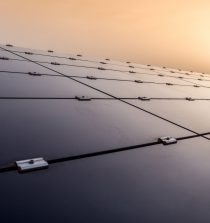Over 500 rural communities in Plateau State suffer from effects of environmental hazards which have also affected economic activities in the communities.
The communities are predominantly off the national grid and could not access energy, thus rely solely on local methods to such as the use of firewood, local lanterns and generators for the few privileged ones among them thereby causing more harm than good.
The use of these conventional methods of energy has led to pollution. But residents of Angwan Rina and Demshin communities of Shendam Local Government Area of the state have heaved a sigh of relief following the commissioning of two solar mini grids, with 50 kilowatts capacity each.
The project was jointly financed by the European Union and Government of Germany under the Nigerian Energy Support Programme (NESP) in partnership with the Plateau State government.
The project, which was done under Public Private Partnership (PPP), is to be run as a business venture and over 2500 people will have access to clean sustainable energy.
Similarly, over 1000 students and staff of Government Science School (GSS), Kuru, Jos-South LGA will stop using firewood to heat water following the installation of 68 units of solar water heaters as a pilot project in the state.
The Deputy Ambassador of the Federal Republic of Germany, Ms. Regine Hess, speaking at the event, noted that there cannot be development without energy. She said with renewable energy, the communities can strive, do a lot of things and tackle the issue of climate change.
“It is so important that when you use clean energy you will not harm the environment. We are using renewable energy to warm water using sun and producing energy in a clean way without polluting the environment,” she added.
While noting that the effects of climate change were being felt through the irregular seasons, she said doing something to address climate change is very important.
Hess said: “The German government supports the cause of withholding climate change and trying to do projects all over the world and in Nigeria we are supporting the renewable energy.”
She said when the programme started, the government of Nigeria and many private people didn’t know much about renewable energy while in other African countries it was already widespread, now the government, she said, has taken it upon itself as part of the official energy mix.
“This is wonderful because it is not only one way of providing power to people who live far away from the grid but it provides clean energy to help avoid the pollution of the environment,” she said.
Governor Simon Lalong in his speech said coming from a rural community, he understands the difficulties and challenges of living without light and other critical infrastructure.
“For about three million of the estimated 4.2 million people in Plateau, that is 70 percent of the population who are domiciled in the rural communities where infrastructural facilities for sustainable development are lacking, they agree with me that energy is a key factor for infrastructural development,” the governor said.
He disclosed that 500 communities that were not connected to the national grid were identified to benefit from the clean, renewable and sustainable energy from natural sources.
“This means that there will be uninterrupted power supply as long as there is sunshine and I am certain that this achievement will boost socio-economic activities in these communities,” he said.
While noting that the project is a milestone that has demonstrated the workability of renewable energy technology in the state, Lalong called on investors to explore other sources of renewable energy that the state is blessed with, saying, “that is wind, hydro and biomass so that we can tap all the available sources of energy for the benefit of our underserved and un-served communities.”
Speaking, the Head of Development Cooperation at the European Union Delegation to Nigeria and ECOWAS, Mr. Kurt Cornelis, pointed out that water heating in Nigeria was done in many conventional ways with the use of firewood and others, which were not sustainable and healthy to man and the environment.
“When we found out that Nigeria receives abundant sunshine, we came to the conclusion that deploying solar water heaters in institutions is much cheaper, environmentally friendly and healthier than other commonly used methods in Nigeria,” he said.
Cornelis said especially in a place like Jos which is one of the coldest points in Nigeria people use a lot of energy for heating especially when there is cold weather.
The use of solar water heaters, according to him, definitely has decreased pollution and electrical bills.
He urged the communities with the solar mini-grid and the students and staff of GSS, Kuru to ensure proper use of the facilities for the sustainability of the investment.
In his remark, the Minister of Power, Works, and Housing, Babatunde Fashola, represented by Faruk Yabo, said the project was unique because it was conceived through technical support.
He said the project provided reliable electricity to improve livelihood and education, among other benefits, to the people using available resources like solar and wind to ensure citizens continued to have access to unlimited access to light.
Source: Daily Trust








